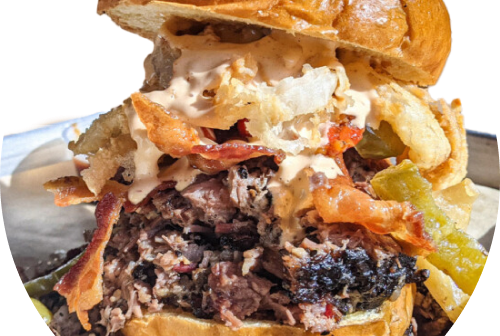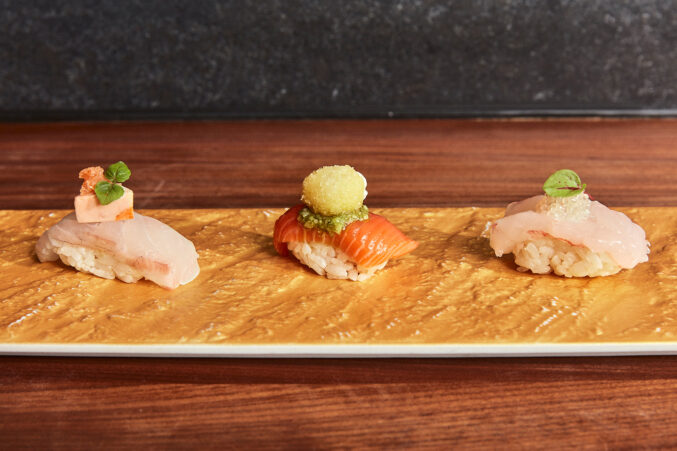 Tuesday, I wrote a post warning restaurants to “just say no” to people who introduce themselves as food writers and expect a free meal for a write up of their restaurant. I thought the “conversation” that took place in the comments section was, for the most part, an intelligent sharing of thoughts between readers, bloggers, restaurateurs, and anonymous commenters. Yesterday, I received phone calls and emails from people across the industry. At the end of the day I realized we have an ugly can of worms swarming around Dallas and I think it’s time we start to clarify some issues and try to make peace.
Tuesday, I wrote a post warning restaurants to “just say no” to people who introduce themselves as food writers and expect a free meal for a write up of their restaurant. I thought the “conversation” that took place in the comments section was, for the most part, an intelligent sharing of thoughts between readers, bloggers, restaurateurs, and anonymous commenters. Yesterday, I received phone calls and emails from people across the industry. At the end of the day I realized we have an ugly can of worms swarming around Dallas and I think it’s time we start to clarify some issues and try to make peace.
On the subject of free meals to bloggers: I received emails from PR people ratting on restaurateurs and emails from restaurateurs ratting on PR people. PR people say it’s the restaurants fault; restaurant owners blame the PR people for not vetting bloggers. My five cents? Restaurateurs, if you want to give away free food to any blogger that is your prerogative. I agree that people who are paid to bring business to a restaurant need to do a better job of bringing qualified bloggers to the table. And that means learning how to say no.
Yesterday, I stumbled upon this blog post. The author of the piece that appeared on the blog for PR Newswire is Victoria Harres. Ms. Harres is Director of Audience Development at PR Newswire, the main voice behind @PRNewswire, social media lead for @Business4Better, and a frequent speaker and writer on social media for business.
She writes a report on a monthly meeting organized by the Social Media Club of Dallas. The event “Bloggers: Truth, Lies & How to Work with Them” consisted of a panel of local bloggers and a room full of PR people. The discussion was to help clarify the air on what bloggers would like from PR people and vice versa.
I read Harres’ report at least ten times and I followed links to the bloggers sites. What I found is this: Nobody has defined the difference between a blogger and a journalist, nobody really understands the FTC guidelines for bloggers, and many bloggers feel that they are entitled to respect and special treatment because they do it for passion. Two restaurateurs told me yesterday that they were “talked down to” because they failed to recognize several local bloggers and give them special treatment.
Let’s break it down.
The panel at the Social Media Club of Dallas meeting included technology blogger Pelpina Trip (@Pelpina), mommy blogger Holly Homer (@TexasHolly), lifestyle and photography blogger Amy Locurto (@livinglocurto), and food blogger Rachel Pinn (@Foodbitch). The conversation was moderated by Cynthia Smoot, who was an ad rep at D Magazine (D CEO) before she moved over to Gangway Advertising. She also writes a lifestyle blog, OhSoCynthia, where she chronicles “Dallas’ hottest events and coolest people.”
Smoot tells the audience that her time as a blogger is valuable. So the “fabulous pair of boots she was recently given for covering a fashion event” is justified. Holly Homer claims her passion to write should be paid for because she has a day job and is not privy to her “expenses being paid for by a media company.” She claims “we are bloggers not journalists.” Bingo, baby. That is why there are now FTC guidelines for bloggers.
I left a comment on Harres’ post about the FTC guidelines. Sarah Skerik, vice president of social media for PR Newswire responded:
Thanks for reading the blog and the comment! Actually FTC regulations was discussed during the panel. It’s something that all are very aware of and know to disclose.
Her note was followed by one by Harres:
The bloggers quoted in our recap appear to be fully aware of and in compliance with FTC guideliness — see @OhSoCynthia’s editorial policy, and @TexasHolly’s disclosure.
I visited their sites and I went back and read the guidelines. They are not in compliance and are open to being fined by the FTC.
Food writer Dianne Jacob cut through the technical writing of the guidelines and offers this assessment. Here are some snippets:
1.The FTC can fine both the blogger and the company for not disclosing an arrangement where the company compensates the blogger for a review, positive mention, or sponsored post. According to the FTC, compensation happens when you:
- Receive a free product and review it
- Link to the product’s website and receive a commission (called an affiliate program)
- Receive money, product or services for posting about a product
- Review a product or service that comes from an advertiser on your site.
2. The definition of “disclosure” is more specific. It’s not enough to make a general disclosure on your About page anymore. The discloser must be contained in the post itself. “So long as the disclosure clearly and conspicuously conveys to the reader the relationship between the blogger and the advertiser, the disclosure will be adequate,” states the article. That means you can write something as simple as, “Company ABC gave me this product to review” and you’re done.
So Smoot and Holler’s disclosure pages are not within the guidelines.
I have one more observation to make about what I learned from visiting new, for me, food blogs. We have a problem with entitlement. Smoot writes:
“I do not charge to attend an event, but I do ask that you place me on your media list and waive any admission fee in return for my attendance and possible editorial coverage. Please note that my attendance does not guarantee editorial coverage on this website. I do not promote events in advance unless they are sponsored (paid posts) nor do I publish about events I did not attend.”
“What you (and I am talking to you, PR people) also need to understand, is that I am not a journalist. I am a blogger. BIG DIFFERENCE. The words I write are my thoughts and opinions. They are not bound by any industry code of ethics or fact-checked by an intern. I will not be calling any publicist to ask for permission to publish something. If you or your client put out information through Twitter, Facebook, or any public online platform, it is fair game for me to use and repost.”
Holy cow, so thoughts and opinions don’t apply to journalists? Interesting. And arrogant.
Harres’ post also contains complaints from the panel. They are upset by being referred to as Dear Blogger and are upset by PR people who don’t take the time to read their blogs before barraging them with emails that don’t pertain to what they write about.
Dear Bloggers, welcome to the club. Journalists get emails addressed to Dear Editor, Dear Technical Consultant, Dear Fashion Expert…I could go on all day. You should be happy you’re in the loop at all. Pelpina Tripp pleads with PR pros to “do their research. Don’t send her pitches if you’ve never seen her work and don’t know what interests her audience” and “If you don’t bother to check out my blog why should I care about your pitch?”
Then tell me why I should care about your blog if you are writing only positive reports on things you have not paid for? Who are you serving? Better yet, who are you promoting?
UPDATE: Cynthia Smoot discussesbloggers vs journalists.






